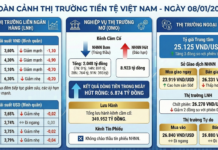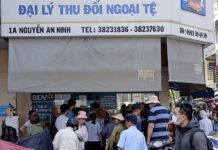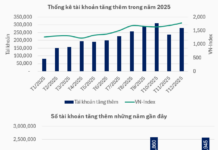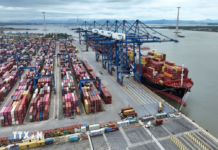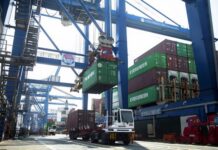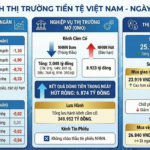
PGS.TS Dinh Trong Thinh affirms that the direction provided by Resolution 143/NQ-CP is very timely and decisive. However, to be effective, it requires close coordination between ministries, sectors, local authorities, and businesses. – Photo: VGP/VH
|
The Government has just issued Resolution No. 143/NQ-CP dated September 17, 2024, on key tasks and solutions to urgently overcome the consequences of Storm No. 3 (Yagi), quickly stabilize the situation of the people, promote the restoration of production and business, actively promote economic growth, and control inflation.
Resolution 143/NQ-CP clearly defines the scope and subjects of support, including people, workers, vulnerable groups, households, businesses, cooperatives, and enterprises in areas severely affected by Storm No. 3, floods, and landslides. The support will be focused on implementation within two months, September and October 2024. For some policies exclusively for businesses and households, the implementation time can be extended until the end of 2025 to ensure the recovery and adaptation to the production and business cycle.
In an interview, PGS.TS Dinh Trong Thinh, a senior lecturer at the Academy of Finance and an economic expert, assessed that Storm No. 3 has caused severe losses in many affected areas. Although the official damage figure is still being collected and compiled by the competent authorities, Mr. Dinh Trong Thinh predicted that the storm’s aftermath could reduce the economic growth rate in 2024 by 0.18 to 0.2% of GDP.
“We had a very optimistic start from the beginning of the year to September 2024, with expectations of achieving a 7% growth rate. However, the devastation caused by Storm No. 3 has had a severe impact, seriously disrupting many economic activities and hindering the production and distribution of goods in many localities, slowing down the recovery and development of the economy,” said Mr. Dinh Trong Thinh.
Timely and Decisive Direction from the Government
With an economy heavily reliant on sectors such as agriculture, seafood, and processing industries, the consequences of natural disasters on these sectors can easily have negative effects on other areas such as transportation, commerce, and services. Therefore, the Government’s swift issuance of Resolution 143/NQ-CP is very urgent and “right” and “accurate” to help businesses recover and rebuild their production to achieve their economic goals.
PGS.TS Dinh Trong Thinh emphasized: “Resolution 143/NQ-CP of the Government is not only a temporary measure but also a foundation for businesses and localities to restore their economic activities after the storm. The Resolution provides orientations, including solutions for restoring production, ensuring social welfare, controlling inflation, and supporting businesses in post-storm reconstruction.”
One of the outstanding points of this Resolution is the clear and specific direction of tasks for each ministry, sector, and locality. From infrastructure reconstruction, transportation restoration, to ensuring the supply of food, and other aspects of social life and production, everything is considered and closely directed.
According to Mr. Thinh, this is an important basis for local authorities and businesses to effectively and quickly implement the task of restoring activities after the storm and floods.

Post-disaster recovery requires the unity and collaboration of all levels, sectors, people, and businesses. – Photo: VGP/Van Hien
|
Businesses and Localities Need to Take the Initiative in Assessing Damages and Proposing Support
However, PGS.TS Dinh Trong Thinh also pointed out that the success of Resolution 143/NQ-CP depends not only on top-down direction but also on the initiative of businesses and localities.
“Businesses need to assess their losses and make specific support requests. The Government has directed debt restructuring, tax postponement, and non-classification of bad debts for affected businesses, but this can only be done when businesses accurately assess and request appropriate support,” PGS.TS Dinh Trong Thinh analyzed.
Specifically, businesses need to coordinate with relevant agencies to propose measures such as tax and fee extensions, as well as debt extensions with banks. For cases with damage of more than 30%, tax reduction will be considered. If the damage reaches 70%, tax exemption can be requested. This process requires careful and transparent preparation by businesses to ensure that support policies are accurately and promptly implemented and targeted.
In addition, PGS.TS Dinh Trong Thinh also emphasized the role of relevant ministries such as the Ministry of Industry and Trade, the Ministry of Transport, the Ministry of Finance, and the State Bank of Vietnam. He suggested that these agencies promptly implement solutions to overcome the consequences of the storm and floods, from ensuring the smooth flow of goods, repairing and restoring transport infrastructure, to providing financial resources to support businesses in the spirit of Resolution 143/NQ-CP.
The Ministry of Industry and Trade effectively performs its assigned task of managing the supply of food, essential goods, and commodities, ensuring that there is no shortage of goods or unreasonable price increases in the affected areas. At the same time, the General Department of Market Management and the Department of Price Management (Ministry of Finance) must also closely monitor and control prices to prevent taking advantage of natural disasters to raise prices.
On the other hand, the Ministry of Transport plays a pivotal role in repairing damaged transport infrastructure and ensuring uninterrupted flow of goods.
“The smoothness of the transport network is an important factor in helping businesses restore production and ensuring uninterrupted import and export activities,” Mr. Thinh emphasized.
The Ministry of Finance provides decisive direction on providing financial resources to support localities and businesses. Along with this, the State Bank of Vietnam effectively implements solutions and requires commercial banks to implement policies on debt restructuring, debt postponement, and non-classification of bad debts for businesses damaged by the storm. This provides businesses with additional financial resources to restore production without immediate debt repayment pressure.
PGS.TS Dinh Trong Thinh affirmed that the direction provided by Resolution 143/NQ-CP is very timely and decisive. However, to be effective, it requires close coordination between ministries, sectors, localities, and businesses.
Post-disaster recovery requires the unity and collaboration of all levels, sectors, people, and businesses. Localities, especially the Departments of Industry and Trade in the affected provinces and cities, need to grasp the situation in detail and report promptly to coordinate the supply of goods and ensure the lives of the people.
Businesses also need to be more proactive in assessing the extent of damage and proposing appropriate support measures. If the whole system acts harmoniously and synchronously, the storm’s damage will soon be overcome, and the economy will quickly return to its growth and development trajectory.
Resolution 143/NQ-CP of the Government is not just a temporary solution but a driving force to help businesses and the economy overcome difficulties after Storm No. 3. With timely direction and coordinated efforts between ministries, sectors, localities, and businesses, we can confidently overcome the consequences of natural disasters and bring the economy back to a sustainable growth trajectory.
“Resolution 143 has opened up practical and specific directions, helping businesses and localities quickly recover and continue contributing to the development of the country. The most important thing now is the initiative and responsibility of the whole system to turn these solutions into reality, bringing the highest efficiency in the post-disaster economic recovery phase,” PGS.TS Dinh Trong Thinh expressed.
Van Hien
Temporary Housing for Nủ Village Residents: VinGroup Sponsors 2 Billion VND, Construction at Lightning Speed, Completion Imminent
This Sunday (September 22nd), the temporary housing project for the residents of Làng Nủ village (Phúc Khánh commune, Bảo Yên district, Lào Cai province) is set to be completed. It promises to be a haven of comfort and safety for the community, offering a fresh start and a new beginning. With careful planning and dedication, this project is a testament to the hard work and collaboration of all involved.
“MB Donates Over 14 Billion VND to Support Flood-Affected Communities”
MB, Military Commercial Joint Stock Bank, is actively involved in relief efforts for communities affected by the recent storms. Beyond direct financial contributions to the affected regions, the bank is encouraging its employees to donate to a dedicated charity account managed by the MB Trade Union. Additionally, MB has launched a VND 2,000 billion loan package to support its customers impacted by Storm No. 3, helping them rebuild their lives and get back on their feet.






